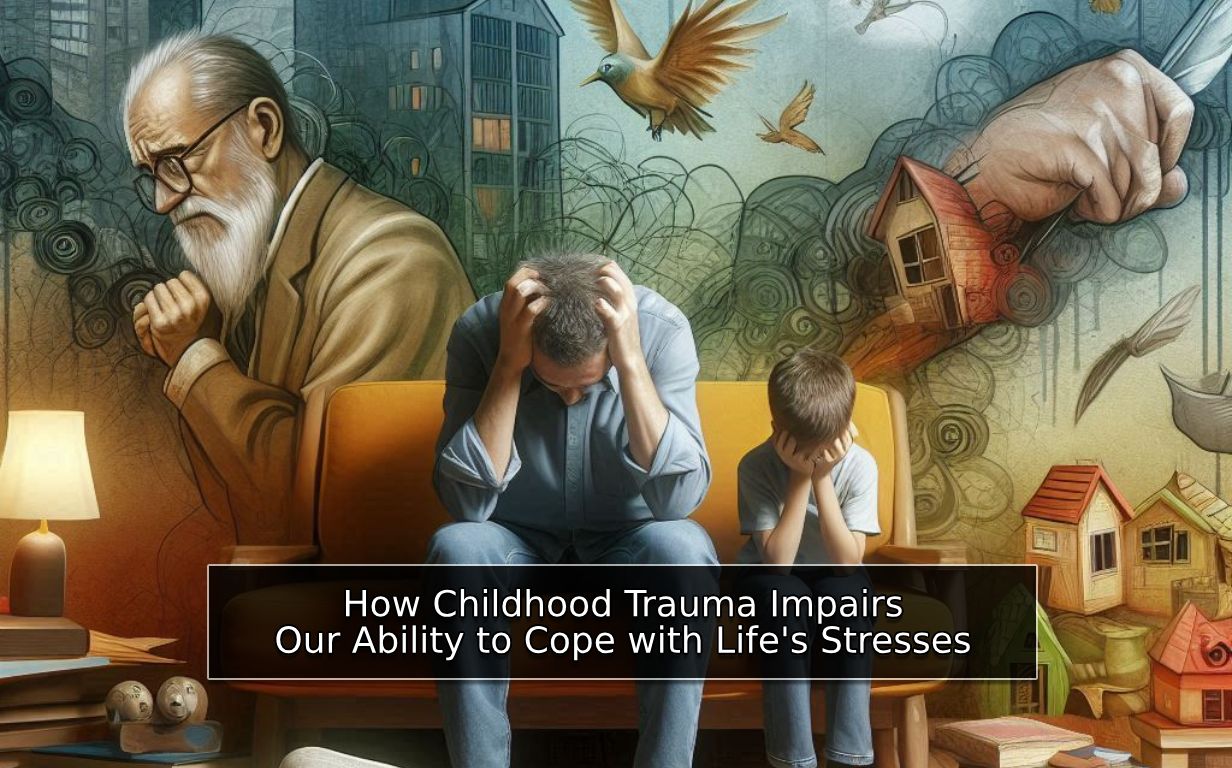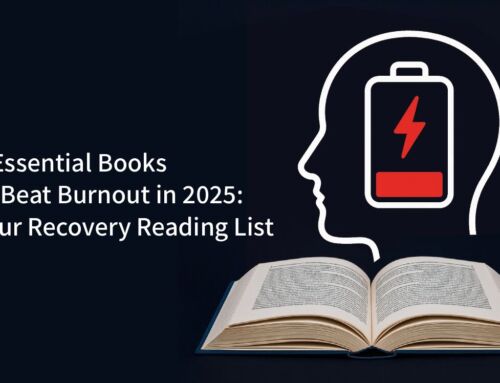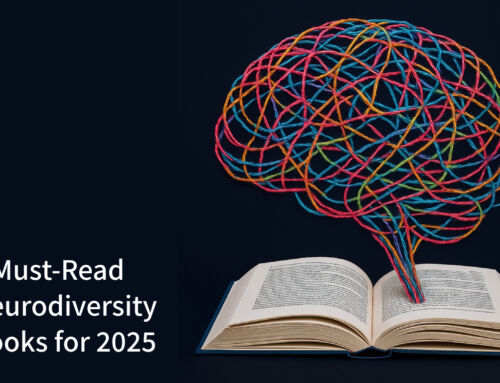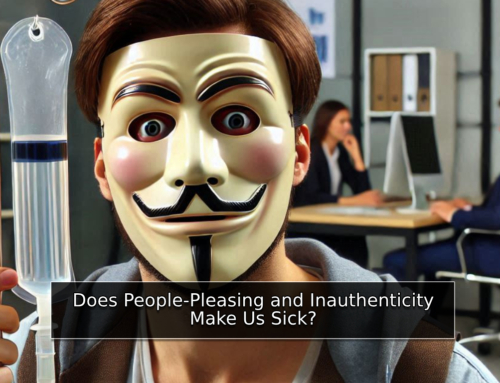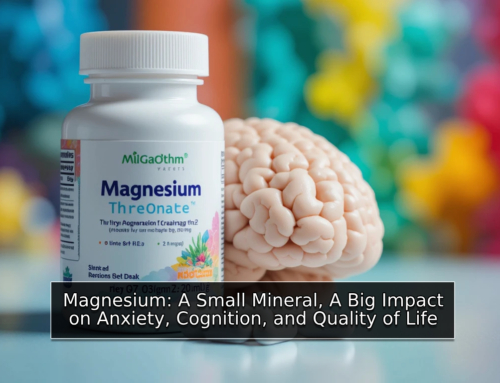How Childhood Trauma Impairs Our Ability to Cope with Life's Stresses
The Lasting Impact of Childhood's Invisible Scars
This post aims to explain how traumatic experiences during childhood, such as growing up in a stressful environment or experiencing emotional neglect, can affect our brain development and our ability to cope with stress later in life. We will explore the connection between childhood trauma and the nervous system, and discuss how therapies like CBT and ACT can help address the long-term effects of trauma.
Childhood Trauma
We've all experienced difficult times in life, but what happens when an entire childhood becomes a prolonged nightmare? When a growing environment is filled with anxiety, stress, and a lack of basic emotional needs? Research shows that traumatic experiences during childhood can leave deep scars on our brains, affecting our ability to manage stress later in life.
What Happens in Our Brains?
When a child is repeatedly exposed to traumatic experiences, their nervous system enters a state of constant alertness. The HPA axis (hypothalamic-pituitary-adrenal), responsible for the body's stress response, goes into overdrive. This state, known as "allostatic load," leads to physiological wear and tear and increases the risk of mental and physical illnesses.
Long-Term Consequences of Childhood Trauma
The effects of childhood trauma can be complex and varied, including:
- Difficulty regulating emotions: Struggling to calm oneself when feeling stressed or upset.
- Challenges building relationships: Lack of trust in others and difficulty opening up.
- Depression and anxiety: Intense negative emotions that hinder daily functioning.
- Eating disorders and self-harm: Attempts to cope with emotional pain through other means.
- Chronic illnesses: Studies have linked childhood trauma to heart disease, diabetes, and digestive disorders.
- Difficulty coping with stress in adulthood: One of the most common and complex consequences of childhood trauma is the struggle to manage stress and tension in daily life. Children who grow up in unsafe or unstable environments learn that the world is a dangerous and unreliable place. As a result, they may develop unhealthy coping mechanisms, such as avoidance, excessive anxiety, or aggression, which make it difficult to handle new challenges. As adults, these individuals may experience difficulties in various areas of their lives, including:
- Decision-making: Fear of mistakes or failure can lead to difficulty making simple decisions.
- Building relationships: Distrust of others can make it difficult to form meaningful connections.
- Health problems: Chronic stress can weaken the immune system and lead to various illnesses.
- Anxiety disorders and depression: Childhood trauma significantly increases the risk of developing these mental health disorders.
How Can We Help? CBT and ACT
Psychotherapies such as Cognitive Behavioral Therapy (CBT) and Acceptance and Commitment Therapy (ACT) can help address the long-term effects of trauma. These therapies teach us how to identify and manage negative thoughts and feelings, change unhealthy behaviors, and develop a healthier relationship with ourselves and others.
Example:
A person who has experienced childhood trauma may develop a belief that "I am unlovable." CBT can help this person examine this belief and find evidence that contradicts it. ACT can help them accept their past and learn to live in the present, even if it's painful.
In Conclusion
Childhood trauma can have a profound impact on our brains and our ability to cope with stress later in life. However, there is hope. Psychotherapy can help us heal the wounds of the past and develop fulfilling lives.
Sources:
- Felitti, V. J., Anda, R. F., Nordenberg, D., Williamson, D. F., Spitz, A. M., Edwards, V., … & Marks, J. S. (1998). Relationship of childhood abuse and household dysfunction to many of the leading causes of death in adults: The Adverse Childhood Experiences (ACE) Study. American journal of preventive medicine, 14(4), 245-258.
- van der Kolk, B. A. (2014). The body keeps the score: Brain, mind, and body in the healing of trauma. Penguin Books.
Contact now
Ready to take the first step towards positive change? Contact me now for more information and to schedule an appointment. Whether you prefer in-person sessions in Tel Aviv or virtual meetings via Zoom, my integrated approach of Cognitive Behavioral Therapy (CBT) and Acceptance and Commitment Therapy (ACT) can help you break free from struggles and find greater fulfillment in life. I'll be sure to get back to you as soon as possible. Let's embark on this transformative journey together!
Call Whatsapp 052-2325511
Or fill out the following form.
Can ACT and CBT assist you or your loved ones?
Welcome to my therapy practice, where I offer a powerful combination of Cognitive Behavioral Therapy (CBT) and Acceptance and Commitment Therapy (ACT) techniques. CBT is a goal-oriented, short-term approach that's highly effective for anxiety, depression, low self-confidence, and more. ACT complements CBT, helping you navigate life's challenges and find fulfillment and authentic, happier life.
If you're struggling with anxiety, depression, low self-image, or facing setbacks, CBT combined with ACT may be the key to transforming your life. Break free from the struggle and take a step towards a happier, more fulfilling life.
Contact me today to schedule an appointment and embark on your journey of positive change. You don't have to face it alone; I'm here to support you every step of the way. Let's work together to create the life you deserve!
